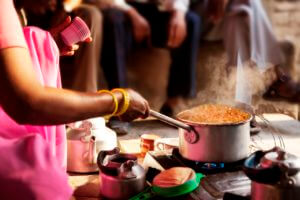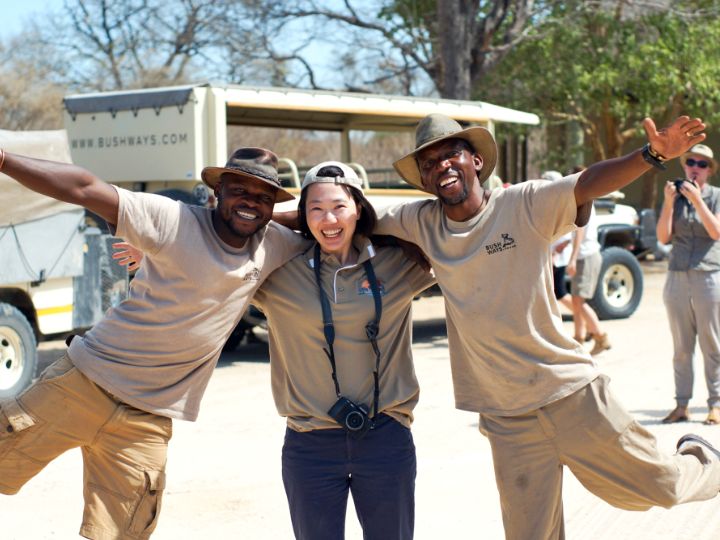Heading off on an African safari? Here’s our comprehensive guide covering tips for staying healthy on an African safari, from how to prepare before you leave home, to what to eat and drink while you’re travelling.
Get your vaccinations before you leave home
Make sure you get all the vaccinations you need before you travel. Visit your GP or travel clinic to find out which vaccinations you need for the countries you intend to visit. The vaccinations can include hepatitis A and B, tetanus, diphtheria and yellow fever.
Get comprehensive travel insurance
It’s absolutely essential to have travel insurance when you go on safari to Africa, which will cover you in case anything goes wrong. Do your research and shop around before you make your decision, and make sure that your policy covers you for all the activities you plan to do (for example, sand boarding in Namibia or scuba diving in Zanzibar).
Take precautions against malaria
Malaria is present across much of southern and east Africa, and it’s really important to take all the precautions you can against getting it. Consult your GP or travel clinic before your trip and find out if you need to take malaria medication. There are a few different options for malaria prophylaxses – do some research on which to choose (for example, Malanil is the most expensive but has the least side effects).
When you are travelling, even if you are on malaria prophylaxis medication, you should still try and avoid being bitten by mosquitoes – especially between dusk and dawn. Use insect repellent on your skin and clothes and make sure that your sleeping area is free of mozzies – sleeping with a mosquito net over your bed is ideal. Between dawn and dusk cover up (even if it’s hot!) with long sleeved shirts and long trousers, socks and closed shoes. Mosquitoes are attracted to dark colours, so wearing light coloured clothes is a good idea.
Pack a good first aid kit
It’s essential to bring your own first aid kit when you go on an African safari, just so you can be prepared if you get sick or get a cut when you’re far from a pharmacy. In your first aid kit pack anti-diarrheal medication, pain killers and anti-inflammatories, rehydrate solution, motion sickness pills, antiseptic cream and antibiotic ointment, cream for insect bites and stings, after-sun cream, bandages and plasters, tweezers, antihistamines if you have allergies, iodine tablets and high factor sun block.
Only drink safe water
In some places in Africa (such as South Africa and Namibia), the tap water is completely safe to drink, but in many countries it’s not safe for travellers to drink the tap water. Make sure you do your research before you travel to find out where you can drink the tap water, and in places where it’s unsafe, drink bottled water (recycling the plastic water bottles wherever you can) or go for the more environmentally friendly option of taking water purification tablets with you to purify the water before you drink it. If you are travelling somewhere where the tap water is unsafe, be sure to avoid having any ice.
Bring things to clean your hands with
Travelling by overland truck in Africa can be a dusty business, and you often have to stop for toilet breaks on the side of the road, so hand sanitiser or wet wipes are your hygienic helpers. One reason to choose wet wipes over hand sanitiser (or to pack both) is that you can use the wipes to clean your face as well as your hands.
Be cautious of what you eat
To avoid the dreaded traveller’s diarrhea, be careful of what you eat while you travel. That’s not to say that you shouldn’t try local dishes in hole-in-the-wall restaurants, or tuck into delicious street food at markets, but you just need to be a bit careful. Only eat food that is hot, cooked through and has been freshly prepared (a good tip is to order food from a stall or restaurant that is really busy, meaning a high turnover of food). Avoid eating salads, peeled fruit and peeled uncooked vegetables.
If you do get diarrhea, make sure you rest and replenish your fluids and salts (drinking rehydrate solutions with electrolytes is recommended). If you are sick for more than seven days, or if your diarrhea is severe after 24 hours, then see a doctor.
Be careful of the sun
The African sun is harsh, and many Europeans and North Americans can end up getting very burned because they use the same sun protection that they would at home. On your African safari, try and avoid being in the sun during the hottest hours of the day (10am to 4pm). If you do go out then, wear a hat with UV protection, a high factor sun block, and long sleeves if possible. Remember that the sun gets stronger the closer you get to the equator. Do pack some after sun cream in case you do get burned!
Eat fresh, local produce when you can
Get your five a day quota to stay healthy by eating local fresh produce – the fruit and veggies in Africa are delicious. For breakfast, you’re likely to get tasty fruits such as mangoes, pineapples, papayas and melons (just don’t eat any fruit with the skin on). Vegetables are great cooked in soups and stews, and regional dishes such as matapa from Mozambique (stewed cassava leaves with peanuts and coconut). In many African countries you’ll find local bean dishes which are also a healthy meal choice.







0 Comments